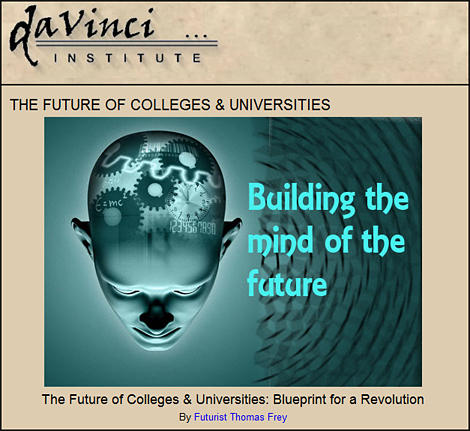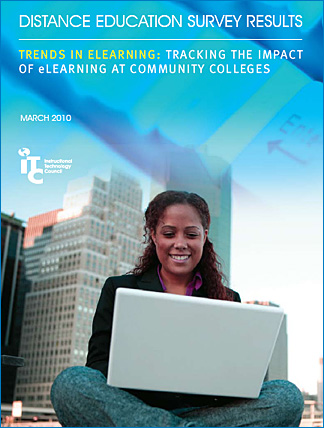The coming melt-down in higher education (as seen by a marketer) — by Seth Godin
For 400 years, higher education in the US has been on a roll. From Harvard asking Galileo to be a guest professor in the 1600s to millions tuning in to watch a team of unpaid athletes play another team of unpaid athletes in some college sporting event, the amount of time and money and prestige in the college world has been climbing.
I’m afraid that’s about to crash and burn. Here’s how I’m looking at it…
From DSC:
Seth’s perspectives on this are similar to what I’ve been saying — and warning would happen — for years now.
My take on the future of higher education is that someone will get it right and will be able to offer team-created and delivered content 24 x 7 x 365 that is mind-blowing by today’s standards and will be able to package and deliver that content and learning experience at discounts of 50%+ off of today’s prices. Yeah, yeah, yeah I hear ya say. Right Daniel…I’ve heard it all before.. your talk about disruption…about technology, etc. etc. etc.
You might have heard it, but you haven’t seen it in higher ed……....yet! My take on this is that you will see this happen. Massive change. The great commoditization of higher education as we know it today. The bubble is about to burst.
After all, the same publishers are selling the same textbooks to many institutions of higher education. In fact, I’m surprised that some publisher hasn’t yet taken a right turn and started offering degrees.They have access to subject matter experts (SME’s), teams of talented instructional designers, programmers, project managers, interface designers, legal/copyright experts, etc. What they lack is accreditation.
More and more I think societies will become increasingly interested in what you can DO and not where you attended school. Sure, there will still be those companies who want to hire only from ____ , ____, or _____; but that type of hiring perspective may not hold up if that organization is being outperformed by others. Also, who knows if corporations are even going to be around in 20 years. It’s turning into a situation where everyone is their own brand, their own company. Project teams come together, do the project, and then disband.
If students are paying a premium today, they should be paying that premium to go to an institution of higher education that:
- Has excellent faculty members — knowledgeable, passionate teachers who know their material cold and know how to teach that material; they are adaptable and are open to changing pedagogy and the use of various kinds of technologies
- Emphasizes and rewards teaching — not necessarily research
- Provides small class sizes and/or the ability to meet frequently with their professors (not a TA, not a grad student, and not a faculty member who might be a skilled researcher but who doesn’t know how to teach very well)
The thing all of us in higher ed need to be on guard about and the question we need to constantly be asking ourselves is, “How do we keep from becoming a commodity? What value do we bring to the table? Why should someone pay X when they are about to be able to pay 0.25 X elsewhere?”












